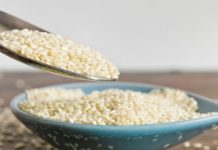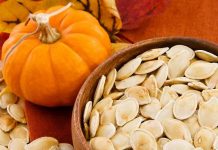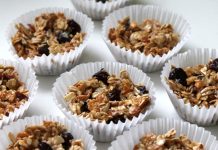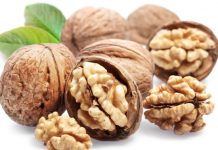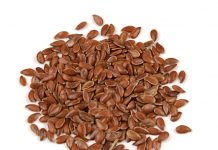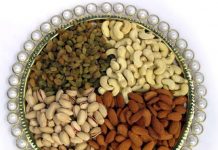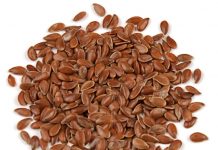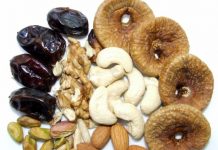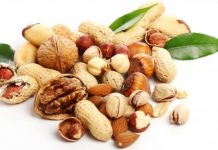Nuts are an important source of energy and nutrients for new plants, wildlife and humans. Generally nuts are rich in oil and are highly prized food. They relatively contain high calories, unsaturated and monounsaturated fats, essential vitamins and amino acids.
A large number of seeds are edible and are eaten raw, used in cookery or are roasted and sold as snack food. Nuts are actually seeds that are also used in cosmetics. There are also a number of nuts which might be harmful if taken in large quantities. Some of such nuts are listed below:
Macadamia
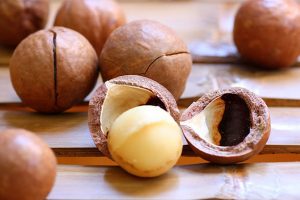
These nuts are very tasty but they are not so healthy. Macadamia nuts are rich in calories. One cup serving of macadamia contains about 1000 calories. Along with high calories content, it contains 102 grams of fat which is much more than one should consume in a day.
Pine Nuts
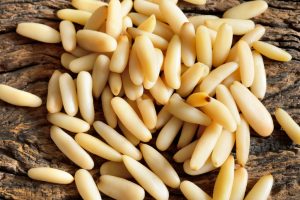
This seed is of a peculiar kind. You might feel a weird thing in your mouth after having some of it. This weird sensation is called pine nut or pine mouth syndrome. It usually develops between 12 to 48 hours after having pine nuts. It is a temporary thing but everything that you will eat during this time might taste metallic, bitter or rancid. This thing might take a few days or weeks to get over. There is neither any known causes nor any remedy for it.
The FDA has already issued an alert regarding this nut. Eating something sweet to reduce the bitterness from your mouth makes things worse. People who are non- allergic to nuts are ones who experience it more. So it is better to avoid having pine nuts.
Horse Chestnuts
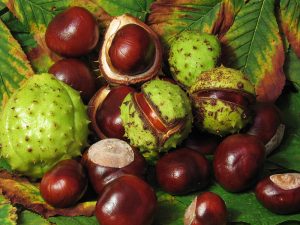
Do not confuse chestnuts with horse chestnuts. Both are two different nuts. They look similar and hence people make mistakes. Both are brown in color and have a lighter brown spot. Horse chestnuts are smoother than normal chestnuts. Good quality chestnuts have little pointed dots but to tell the difference between chestnuts and horse chestnuts is very difficult to say.
The major difference between horse chestnuts and normal chestnuts is that the horse chestnuts contain toxin that might cause vomiting and nausea. In large doses the horse chestnut can cause paralysis. It is said that the toxins can be leached out of the horse chestnut but it is not worth the risk. They are also toxic for animals. One should also know that chestnuts and horse chestnuts are not all related.
BBQ or Boiled Nuts
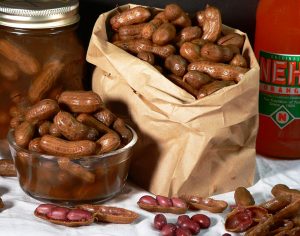
If you are someone who needs to maintain your sodium intake, then its best to steer clear of hot and spicy barbecue (BBQ) flavored nuts. Such nuts contain about 370 milligrams of sodium per ounce along with 14 grams of fat and 160 calories. One should avoid having boiled peanuts too. It is a southern treat which is made by soaking fresh peanuts in salty brine. Margaret Holmes Boiled Peanut, for example, contains about 390 milligrams of sodium per ounce.
Bitter Almonds
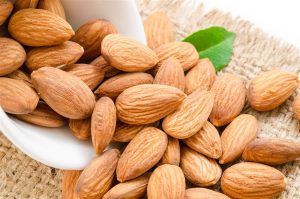
Almonds are very tasty but bitter almonds are terrible. They are actually apricot kernels. Raw bitter almonds contain a type of cyanide and consuming them raw may have serious consequences. It is cyanide free bitter almonds that are used as spices only after being prepared properly. Besides cyanide, bitter almonds contain hydrocyanic acid that can be removed only after it is heated properly. Eating them raw can be dangerous. So it is best to steer clear of raw bitter almonds.

